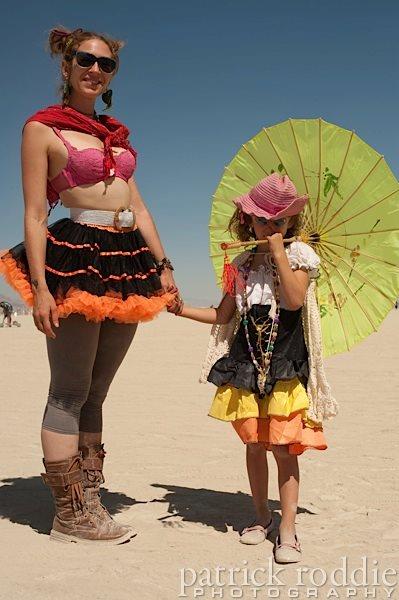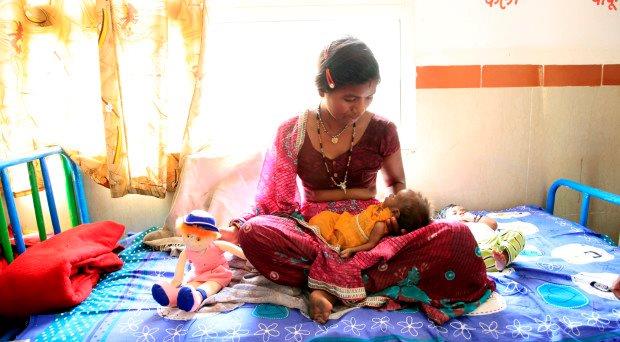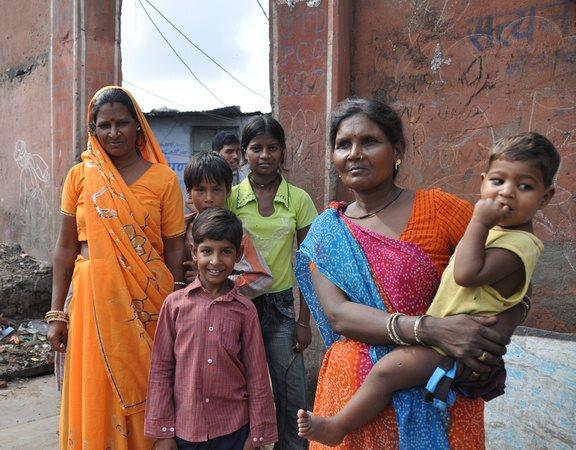Published in the NCT (National Childbirth Trust) magazine, UK in 2009.
GOOD MOTHERS AND BAD MOTHERS
Sonia Doulton – 2009
What is maternal ambivalence? How near do hate and aggression lie to love?
The Ik is a tribe living in the mountains of the northern border of Uganda. They were displaced from their land to create a national park and consequently suffered extreme famine. Starvation caused a disintegration of their social organization and the family as an institution ceased to exist. Children by age three are expelled from the household and form groups consisting of those of the same age. No adults look after the children, who teach each other the basics of survival. Children are seen as annoying competitors in the hunt for food and sentiments of love between parents and child find no place. The Ik are not an isolated case. A dislike for children can be found in the culture of other primitive societies too.
What about our civilized Western society? Are we different? High is the number of children annually taken into public care in the Western world and many are the accounts of parental cruelty, neglect or desertion. Filicide is increasingly common. According to the NSPCC (National Society for the Prevention of Cruelty to Children) every ten days in England and Wales one child is killed at the hands of their parent. In half (52%) of all cases of children killed at the hands of another person, the parent is the principal suspect.
Being a mother means to subordinate your needs to those of your children. It’s a hard job, exhausting, lonely and mind-numbingly boring, nothing to do with the idyll that some women expect. Many women experience mixed feelings about motherhood but few express them. This culture is reluctant to acknowledge the complexity of maternal experience and divides women into bad mothers who abuse children and leave them alone (the witch hunt involving Madeleine McCann’s mother is an example), and good mothers, the perfect housewives and domestic goddesses.
Maternal love is often regarded as an instinct, a spontaneous and simple consequence of having a child, as opposed to maternal neglect and cruelty usually judged as rare aberrations. In reality there is nothing simple or straightforward about motherhood. The personality development of a mother is deeply ingrained in the societal expectation that women are the primary caretakers of children. This role defines how women develop their sense of self and morality and their function of being responsible for those around them.
The role of women in society has changed a lot since feminism, yet the social construct of motherhood is still quite rigid and polarised. Motherhood is either denigrated or idealised. We ignore most mothers’ emotional reality, because to acknowledge the complexity of the maternal experience is too threatening to our cultural stability.
A lot of pressure is put on mothers to live up to a certain maternal ideal. Mothers consequently learn to repudiate their negative feelings towards their children and imprison them in depression. An understanding of maternal ambivalence is difficult in our culture because the general perception is that negative feelings towards our children are unacceptable and potentially dangerous. The result is that these feelings are internalised and become persecutory guilt and depression.
According to the Royal College of Midwives 20% of women suffer from Post Natal Depression and 44% of them will pretend with their health visitors that everything is fine. In many cases depression can be triggered by the inability to live up to the myth of perfect mothering, which is an unachievable ideal.
The world of mothers is a very competitive one. It’s rare to hear a mother complaining about her role because motherhood is portrayed as a natural state for a woman and the “natural” is associated with maternal love and not with maternal hate. Mothers feel judged by society as well as judging themselves harshly and feel shame for not measuring up. The natural mothering is a land of perfection where even the odd bottle-feed is a source of shame. The prevalence of how-to mothering programmes, like “Supernanny”, just add more pressure.
Female aggression is a component of maternal ambivalence. Because of the taboo that surrounds it mothers easily distance themselves from their own destructiveness and as a consequence, from the creative potential of their own ambivalence. The rejection of the aggression negatively affects both the mother’s development and her relationship with the child. When aggressive feelings are split-off instead of being experienced consciously and thought about, they can be acted-out. The risk of abuse could be avoided if our culture allowed mothers to have their ambivalent feelings without instilling shame and guilt in them. Mothers would be able to think about what is happening in their relationship with their children, and use their ambivalence creatively.
Negative feelings are a valuable source of information about our environment and our lives. They alert us when our needs are not being met. Being aware of them increases the wellbeing of those around us and increases our capacities for collegiality and growth.
Our culture’s deep ambivalence about maternal ambivalence is rooted in our infantile terror that a mother’s hate will destroy her love and concern, leading to a child’s isolation and abandonment.
The cultural fantasy of the ‘at-oneness’ of mother and child fortifies an idealised conception of motherhood in which separateness and differences are not promoted and in which a mother’s capacity for creative thinking is undermined. The majority of mothers respond to this deeply established cultural imperative and disallow themselves to experience consciously both positive and negative feelings towards their children. The denial of these feelings estranges mothers from their emotional reality and makes them emotionally inaccessible to the developing child.
The psychological conflicts and difficulties confronted by women when becoming mothers are enormous: women don’t find the expected, stereotyped rewards of motherhood and experience a sense of inadequacy, which can lead to hostility against those who they love the most: their own children. The child is perceived, as a narcissistic extension of themselves and the cruelty inflicted on the child is in fact a self-punishment. The clichéd motherhood ideal that exists in our society inhibits mothers from sharing the unthinkable truth of their hatred and unable to confide those horrid feelings to anyone, they find themselves in a condition of isolation where a negative spiral can get started.
It’s important to subvert the tendency to define female identity with maternity, renounce the construct of women mothers that pervade our culture and instead develop a construct of women as full subjects. The rigid dichotomy of the denigrating/idealising maternal notion prevents women from experiencing their own aggressive potential in a conscious way, without persecutory guilt and self-loathing. By dismantling the taboo surrounding maternal ambivalence, a more creative, autonomous and subjective experience of femininity would be possible whether women choose to become mothers or not.
A mother needs to know herself, to own up to the diverse, contradictory, often overwhelming feelings evoked by motherhood. Only a mother who can face her own inner turbulence can make sense of her child’s. It’s only by accepting that at times you are a bad mother, that you can ever be a good mother.



